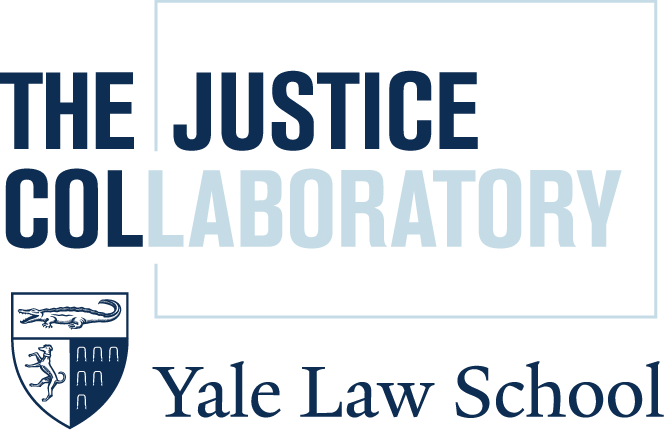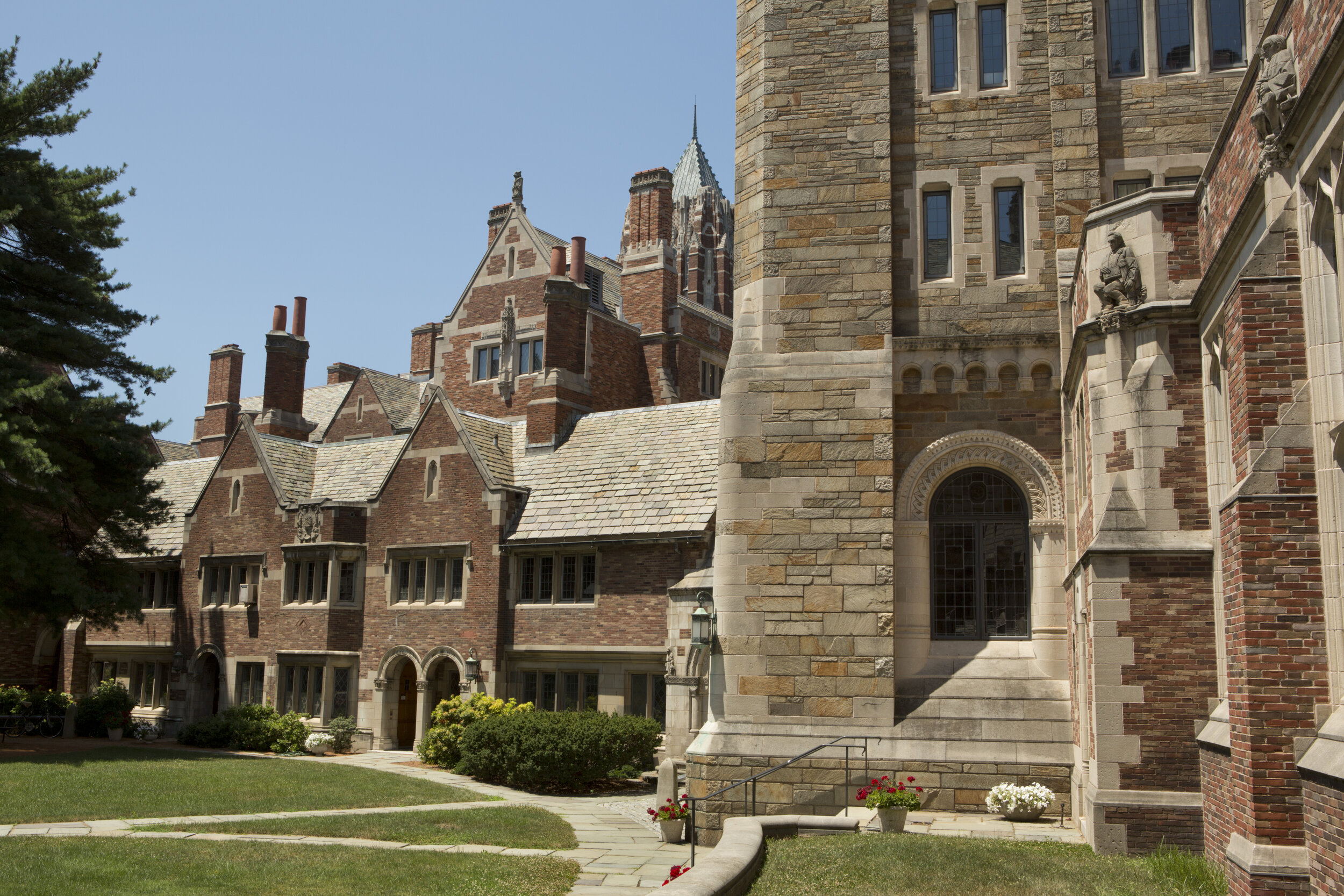Projects
Our work is driven by a diverse community of scholars who conduct justice-focused, community-oriented theoretically grounded work.
Scholar
- Andrade 1
- Aunger 1
- Ayres 1
- Badiei 3
- Baskin-Sommers 1
- Bell 3
- Betts 1
- Bradford 1
- Camacho 1
- Cox 2
- Dessources 1
- Diodati 1
- Erickson 1
- Friedman 1
- Gluck 1
- Goff 1
- Granot 1
- Gripp 6
- Hinton 1
- Jha 1
- Johnston 3
- Katsaros 7
- Kazar 1
- Kim 1
- Kraschel 1
- LaGratta 1
- Lewis 1
- McDonald 1
- Meares 13
- Meyer 1
- Nobo 7
- O'Brien 1
- Parigi 1
- Peyton 1
- Pineda 1
- Prowse 1
- Puglisi 1
- Quattlebaum 3
- Schoenebeck 1
- Seau 1
- Sperrazza 1
- Stewart-James 1
- Tyler 16
- Vaughn 3
- Venkatesh 6
- Wang 1
- Weaver 1
- Wheelwright 1
- Yang 1
- courts 2
Elevating Trust and Legitimacy for Prosecutors Project 2.0
Yale Law School’s Justice Collaboratory has partnered with the Association of Prosecuting Attorneys and LaGratta Consulting to develop the Elevating Trust and Legitimacy for Prosecutors Project. Through a multi-phase site selection process, project partners chose the Salt Lake County District Attorney’s Office, Saint Paul City Attorney’s Office and Columbus City Attorney’s Office as the project pilot sites to engage in a year-long collaborative assessment, planning, and implementation process of procedural justice practices.
Two Case Studies on Platform Design
The SMGI's Spring '23 lab partnered with New_ Public to develop case studies looking at two specific design features of online platforms - reputation management systems and jury/tribunal systems. Over the course of the semester, students in our lab read through related research, collated examples of how these systems are used across different platforms, and interviewed practitioners who have developed these systems on major platforms resulting in these case study reports.
Community Moderation Project
The Community Moderation Project (CMP) is a qualitative study of how community moderation facilitates online discourse and how such moderation might be used in the future.
Elevating Trust and Legitimacy for Prosecutors Project
Yale Law School’s Justice Collaboratory has partnered with the Association of Prosecuting Attorneys and LaGratta Consulting to develop the Elevating Trust and Legitimacy for Prosecutors Project. Through a multi-phase site selection process, project partners chose the Salt Lake County District Attorney’s Office, Saint Paul City Attorney’s Office and Columbus City Attorney’s Office as the project pilot sites to engage in a year-long collaborative assessment, planning, and implementation process of procedural justice practices.
Data Transparency Advisory Group
Facebook’s Data Transparency Advisory Group (DTAG) assessed Facebook’s methods of measuring and reporting on its Community Standards enforcement policies. DTAG was chaired by Tracey L. Meares and Tom R. Tyler, who are the faculty directors of the Justice Collaboratory.
Social Media Governance Research Network
Yale Law School’s Justice Collaboratory has launched a new research network within their Social Media Governance Initiative. The Research Network is a consortium of scholars working together to examine the sociocultural impacts of digital technologies on contemporary social life.
Working Group to Reimagine Public Safety
In partnership with the Policing Project at New York University School of Law, The Justice Collaboratory organized the convening of two working groups of some of the country’s leading advocates and experts to discuss what a reimagined public safety system would look like.
Workers’ Perspectives Study of Procedural Justice and Criminal Justice System Legitimacy
The Justice Collaboratory conducted a study of perspectives of individuals working at the frontline of six key institutions in New York City’s criminal justice system: prosecutors, defense attorneys, judges, correction officers, probation officers and Criminal Justice Agency interviewers.
The Concord Project: The Connecticut State Department of Correction Procedural Justice Training and Evaluation
In partnership with the Connecticut State Department of Correction and LaGratta Consulting, The Justice Collaboratory designed and evaluated an intervention focused on increasing procedural justice inside correctional facilities.
Policing, Law, and Policy Clinic at Yale Law School
The Policing, Law, and Policy Clinic offers current Yale Law School students the opportunity to translate cutting-edge empirical research on policing reform into real-world policies
National Initiative for Building Community Trust and Justice
The Justice Collaboratory and members of the National Initiative for Building Community Trust and Justice have designed intervention programs that aim to improve police-community relations in six pilot cities around the country.
Community Vitality Study
The Community Vitality Study (CVS) is a series of research surveys of police officers and the residents of US cities. The primary goal of the CVS is to better understand the views that both residents and police officers have on police-community relations and other local public policy issues.
Civility on Nextdoor
We have partnered with Nextdoor to test alternatives to punitive governance mechanisms.
A Study of Procedural Justice & Juveniles: The Influence of School Resource officers (SRO Study)
The Justice Collaboratory explored the influence of school-based policing on adolescent safety and wellbeing, as well as on juvenile perceptions of the criminal justice system.
A Community Study of Procedural Justice & Criminal Justice System Legitimacy (MOCJ)
The Justice Collaboratory conducted a community study on behalf of the New York City Mayor’s Office of Criminal Justice (MOCJ), looking into New Yorker’s engagement with the city government.
Policing Post-Ferguson Conference: A symposium of the Justice Collaboratory
This convening, sponsored by the Justice Collaboratory, explores how policing in the United States will and/or should be affected by the shooting of Michael Brown in Ferguson, Missouri, and the subsequent nationwide protests.
















